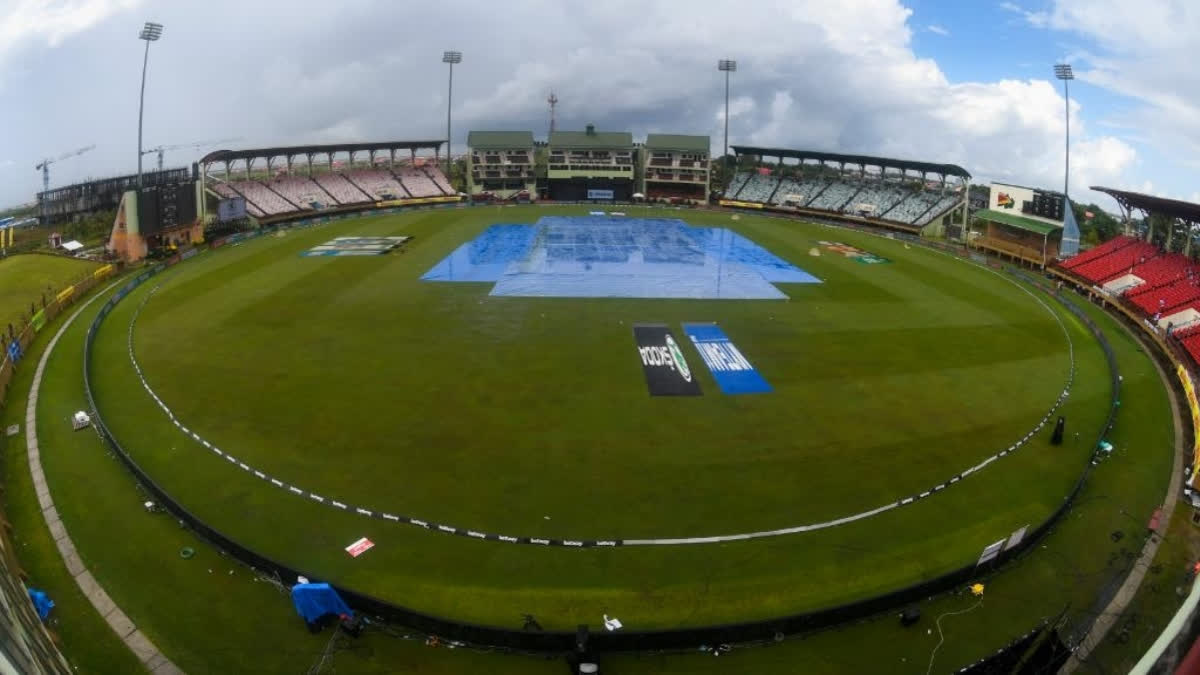


Guyana: Nestled on the northeastern coast of South America, Guyana is a unique country that, despite being territorially conjoined with South America, is totally Caribbean at heart and in spirit.
Cricket, not football, is the oxygen of its arteries. Guyanese Indians, not Latinos, live on its Amazonian territory where the oceanic Demerara River and the muddy Atlantic ensconce its way of life.
Despite being part of a South America of Messis and Ronaldos and Ronhaldinos, it does on the Clive Llyods and the Rohan Kanais, or the Chandra Pauls and Carl Hoopers. Guyana, incidentally, has never qualified for a FIFA World Cup. But it has been part of a cricketing lure that West Indies has sported for ages – fierce, quick, passionate and infused with cricketing fervour.
Like big man Llyod who was born on August 31, 1944, in Georgetown, British Guiana. Remember how small but solid his bat looked when he towered over it from his tall height at the crease? A powerful batter, as captain from 1974 to 1985, he was largely responsible for the West Indies’ extraordinary success in international cricket.
Cricket here is more than a sport; it is a way of life, deeply embedded in the nation’s history and identity. The game binds Guyana’s diverse population, which includes a whopping 60 per cent of people of Indian ancestry, a legacy of the indentured labourers brought to work on sugar plantations in the 19th century. This Indo-Guyanese connection has significantly influenced Guyana’s cricketing heritage.
Guyana’s cricketing history is rich and illustrious, producing legendary cricketers who have left an indelible mark on the sport. One of the most iconic figures is Rohan Kanhai, a batter of extraordinary talent and flair. Kanhai, of Indian descent, became a symbol of excellence in the 1960s and 1970s, known for his innovative stroke play and ability to dominate bowlers. His legacy continues to inspire young cricketers in Guyana and the broader Caribbean.
Following in Kanhai’s footsteps was Alvin Kallicharran, another brilliant batter of Indian ancestry. Kallicharran’s elegant left-handed batting and his ability to play under pressure made him a vital part of the West Indies team during its golden era. His contributions to West Indies cricket are fondly remembered, and he remains a celebrated figure in Guyana.
Ramnaresh Sarwan, who has since shifted base to the United States and now runs a chain of restaurants in Georgetown named, well, Sarwan, has carried forward this legacy into the 21st century.
Sarwan’s consistent performances and calm demeanour was instrumental in many of West Indies’ successes during his career and continues to be an influential figure in Guyana’s cricketing circles.
Shivnarine Chanderpaul, perhaps one of the most distinctive and resilient cricketers of his generation, further exemplifies the Indo-Guyanese impact on the sport. With his unorthodox batting stance and dogged determination, Chanderpaul became one of the most dependable batters in world cricket. His remarkable career, spanning over two decades, has left a lasting legacy in both Guyana and international cricket.
Guyana’s cricketing culture is vibrant and deeply passionate. The Guyana National Stadium in Providence, with a seating capacity of 20,000, is a testament to this passion. The stadium comes alive during matches, with fans creating an electric atmosphere that reflects their love for the game. Cricket in Guyana is not just about the sport; it is a social event, a celebration of community, and a reflection of the country’s cultural mosaic.
The Indo-Guyanese influence on cricket is profound, reflecting the broader cultural syncretism of Guyana. Festivals like Diwali and Holi are celebrated with great enthusiasm, and Indian music, dance, and cuisine are integral parts of the cultural fabric.
The Indian Government has put in money to build the infrastructure here, like the airport highway which it is constructing to bypass the city traffic and bring Georgetown closer to its international arrivals.
This cultural and strategic amalgamation is also evident in the way cricket is played and celebrated, blending Caribbean flair with Indian tenacity and technique.
Guyana’s connection with Indian cricket is also evident in the mutual respect and admiration between players from both regions. Indian cricketers, such as Sunil Gavaskar and Sachin Tendulkar, have been revered figures in Guyana, and the ties between Indian and Guyanese cricket continue to be strong. Tours by Indian teams to the Caribbean, including Guyana, are eagerly anticipated and are celebrated events that further strengthen this bond.
The cricketing ties between India and Guyana reflect a broader historical and cultural connection. The shared love for cricket has bridged geographical distances, fostering a sense of camaraderie and mutual respect. As Guyana continues to produce talented cricketers, the legacy of its Indo-Guyanese heritage remains a cornerstone of its cricketing identity.
In essence, cricket in Guyana is a beautiful confluence of Caribbean and Indian cultures. It is a sport that transcends boundaries, uniting people and celebrating a rich heritage.
From the legendary exploits of Kanhai and Kallicharran to the contemporary heroics of Sarwan and Chanderpaul, Guyana’s cricketing history is a testament to the enduring spirit and passion of its people. The India-Guyana cricket connection is a unique and cherished relationship, underscoring the unifying power of cricket in a culturally diverse world.
Read More
- T20 World Cup 2024: Who Will Qualify for Final from Semi-Final 1, Why Different Rule for India vs England Clash
- No Richard Kettleborough For India’s Match; ICC Selects Umpires For T20 World Cup Semi-Finals
- Unbeaten India Set To Face England In Revenge Semi-final